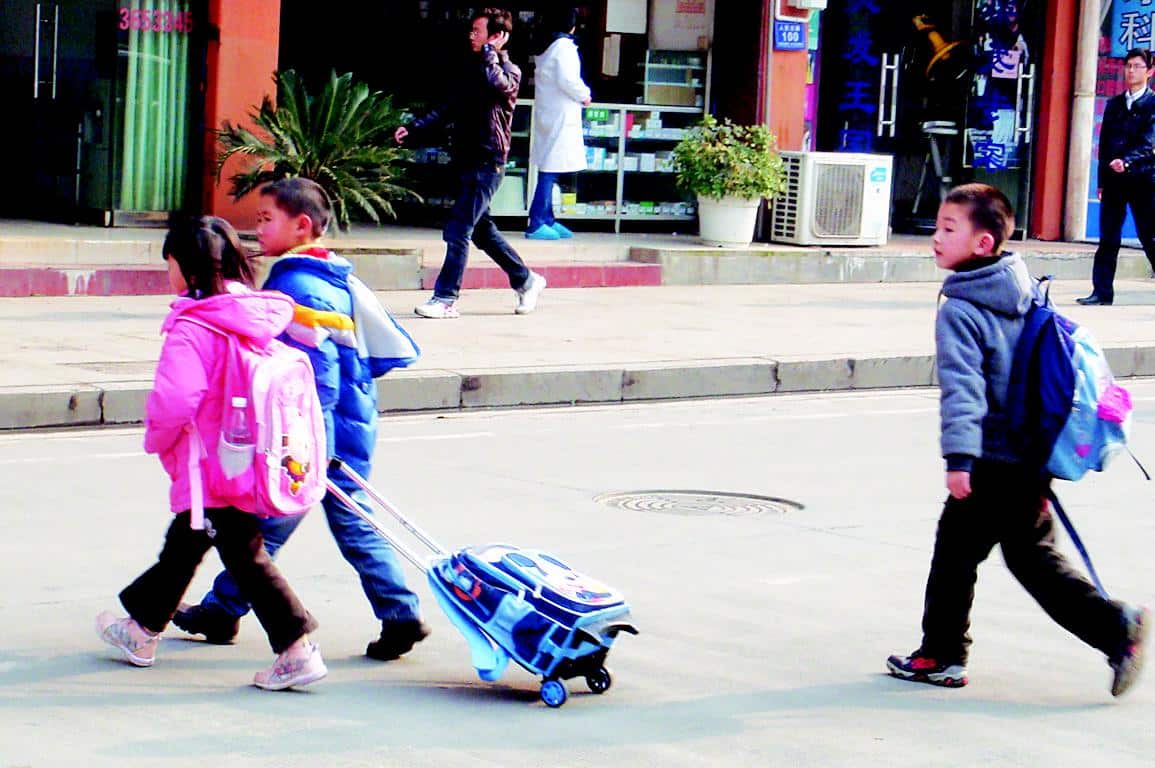It’s Chinese tradition to place very important values on education, so important that, usually, a child and his/her schoolwork become the center of the little universe known as family. Each member of the family does all he/she can to contribute to the child. But can there ever be too much emphasis placed on it? One can but only imagine the kind of pressure placed upon children these days, the kind of the pressure that may destroy a child.
When I paid a visit to my in-laws in Shanghai, I met my cousin Lin for the first time.
Lin is in middle school, tall for her age, but extremely thin, so thin that I’m worried a gust of wind might sweep her off her feet. She has a tiny, pretty face, framed with a pair of chunky glasses. We met during a family gathering.
I found it very difficult to talk to Lin, mainly because she didn’t respond to a lot. My attempts at making friends with this 12-year-old seemed completely futile. She would not answer my questions like “what’s your name” or “what do you like to do for fun”. When she finally responded (only because her parents made her), I could barely hear her even though I moved to sit right next to her. I looked into her eyes, hoping to see what she was thinking, but I could not.
After a while, I learnt from her parents and some other family members that she had been under a lot of stress, and since she had an introverted personality to begin with, it had a big effect on her. Her father said, “She is in school all the time. When she comes home from school it’s already very late. She starts her homework, has dinner for 30 minutes, then dive back into her homework. We don’t know when she sleeps since she sleeps later than we do. On Saturday and Sunday she goes to cram school…”
Frankly, I was appalled. For the rest of the evening I played games with her on her phone, the only thing that seemed to interest her. I don’t know how to describe the kind of feeling I had toward her, probably a mixture of respect and sympathy . When I asked her parents if they thought she’s carrying too heavy a load, they replied, “We think so too, but we can’t do anything about it because all the other kids live like that. If we relax just a little they’d outcompete us. We want Lin to find a good job and have a good future.”
On the way home, I expressed to my in-laws that I’m sad for Lin. Again, they told me there’s nothing to be sad about because there are many kids like that nowadays. Just the more reason to be sad, I thought to myself. It’s precisely because the system is made that way, along with the huge population, that has made kids the way they are. At that moment, I suddenly remembered the kids in my English class three years ago when I was teaching in China. I could never forget some of their faces —- the same blank expressions that reminded me how much they loathed to be in that classroom with me. Or perhaps they didn’t even feeling the loathing, for they felt nothing. They were numb from the world. They could only find consolement in the fantasy world of gaming and the internet (judging from their after-class activities).
That day, I thought that if I ever have a kid, I might be reluctant to raise my kid in China. Because, yes, I think there can be too much pressure forced down on these frail little shoulders, and there actually can be too much importance placed on the “holy education”, as we Chinese phrase it.
This is a New York Times article on the Chinese high school exam and the kind of pressure it exerts upon the students:
http://www.nytimes.com/2015/01/04/magazine/inside-a-chinese-test-prep-factory.html


